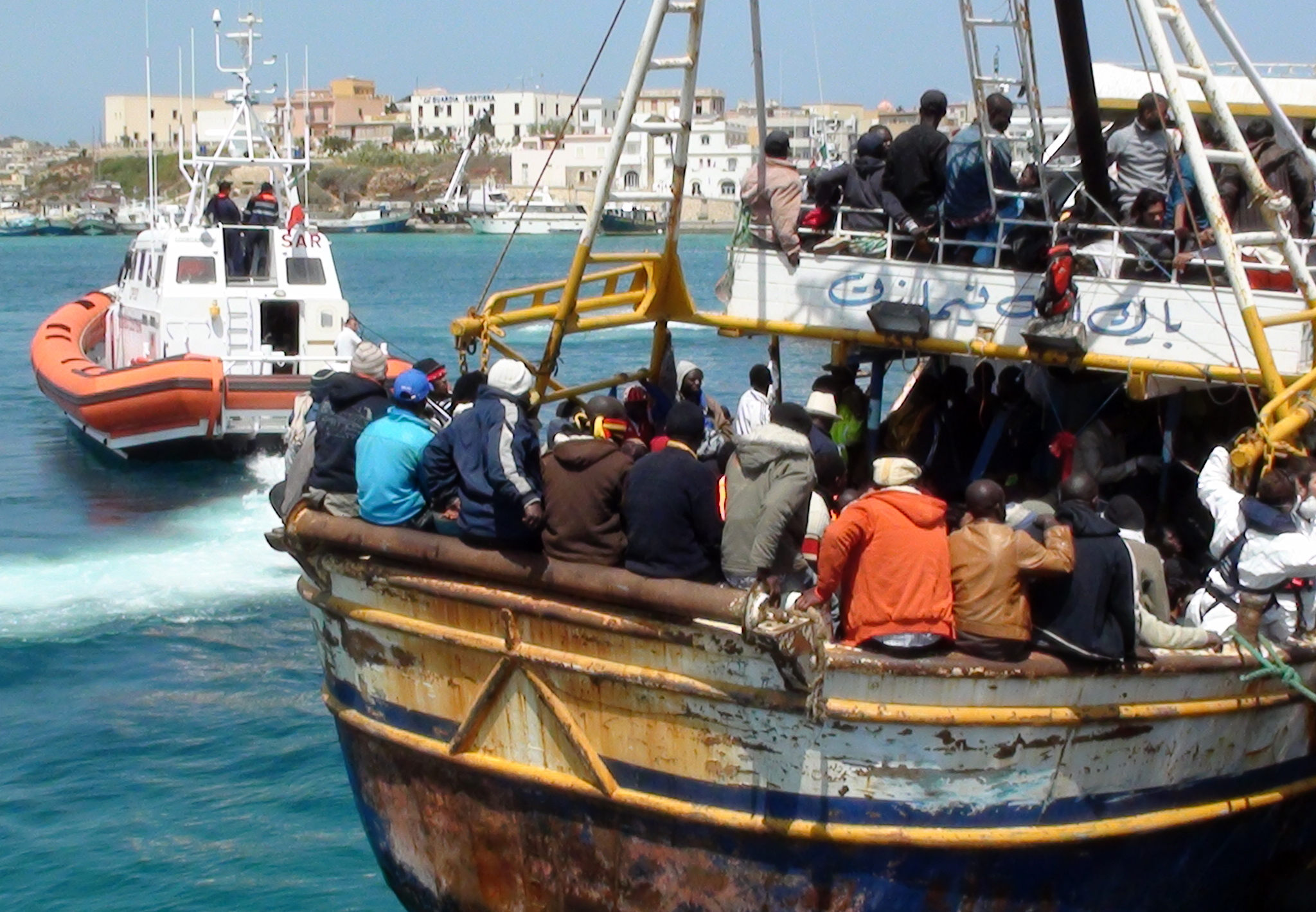Maritime conventions amended to facilitate search-and-rescue at sea
Maritime conventions amended to facilitate search-and-rescue at sea

GENEVA, June 30 (UNHCR) - The exodus of hundreds of thousands of Vietnamese from their country in flimsy boats during the 1970s and 1980s focused world attention on the plight of so-called "boat people" for the first time.
More than two decades later people are still fleeing their countries to escape violence, persecution or poverty and making perilous ocean journeys in a bid to reach sanctuary and a better life overseas. Many never make it, while a few lucky ones are rescued by passing ships - mainly merchant vessels.
But vessels fulfilling their humanitarian duty in waterways around the world have encountered problems as states have occasionally refused to let some migrants and refugees rescued at sea disembark, especially when they lacked proper documentation. This state of affairs put shipowners and companies in a very difficult situation, even threatening the integrity of the time-honoured humanitarian tradition to assist those in peril at sea.
Recognizing this problem, signatory states to the relevant international maritime conventions - the 1974 International Convention for the Safety of Life at Sea (the SOLAS Convention), and the 1979 International Convention on Maritime Search and Rescue (the SAR Convention) - have introduced some amendments that will enter into force tomorrow.
The amendments aim to ensure that the obligation of the ship's captain to render assistance is complemented by a corresponding obligation of states to cooperate in rescue situations, thereby relieving the captain of the responsibility to care for survivors, and allowing individuals who are rescued at sea in such circumstances to be delivered promptly to a place of safety.
In essence, the amendments require signatory states and other parties to cooperate to ensure that ships rescuing persons in distress face minimum disruption in their schedules by arranging disembarkation as soon as reasonably practicable. For their part, captains who have picked up people at sea - or found stowaways on board - are obliged to treat them humanely, within the capabilities of the ship.
UNHCR and the UN's International Maritime Organisation (IMO) will also issue an information leaflet in the coming months, that will provide guidance on relevant legal provisions and procedures to shipmasters, shipowners, government authorities, insurance companies, and other interested parties involved in rescue at sea situations.

"People taking to sea in this way do so for a mixture of reasons," UNHCR's chief spokesman, Ron Redmond, told journalists in Geneva on Friday. "We have a direct interest in their fate since, even if the majority may be migrants without international protection needs, a certain proportion of those travelling irregularly by sea turn out to be refugees," he added.
The IMO, which is responsible for the safety and security of shipping, issued a statement saying its prime concern was that "unless the matter was considered in all its aspects and appropriate action was taken, there might be a negative impact on the integrity of the global search-and-rescue system which IMO has put in place."
Recognizing this problem, signatories to the SOLAS and SAR Conventions decided to review them so that any existing gaps, inconsistencies, ambiguities, vagueness or other inadequacies could be identified and necessary action taken.







